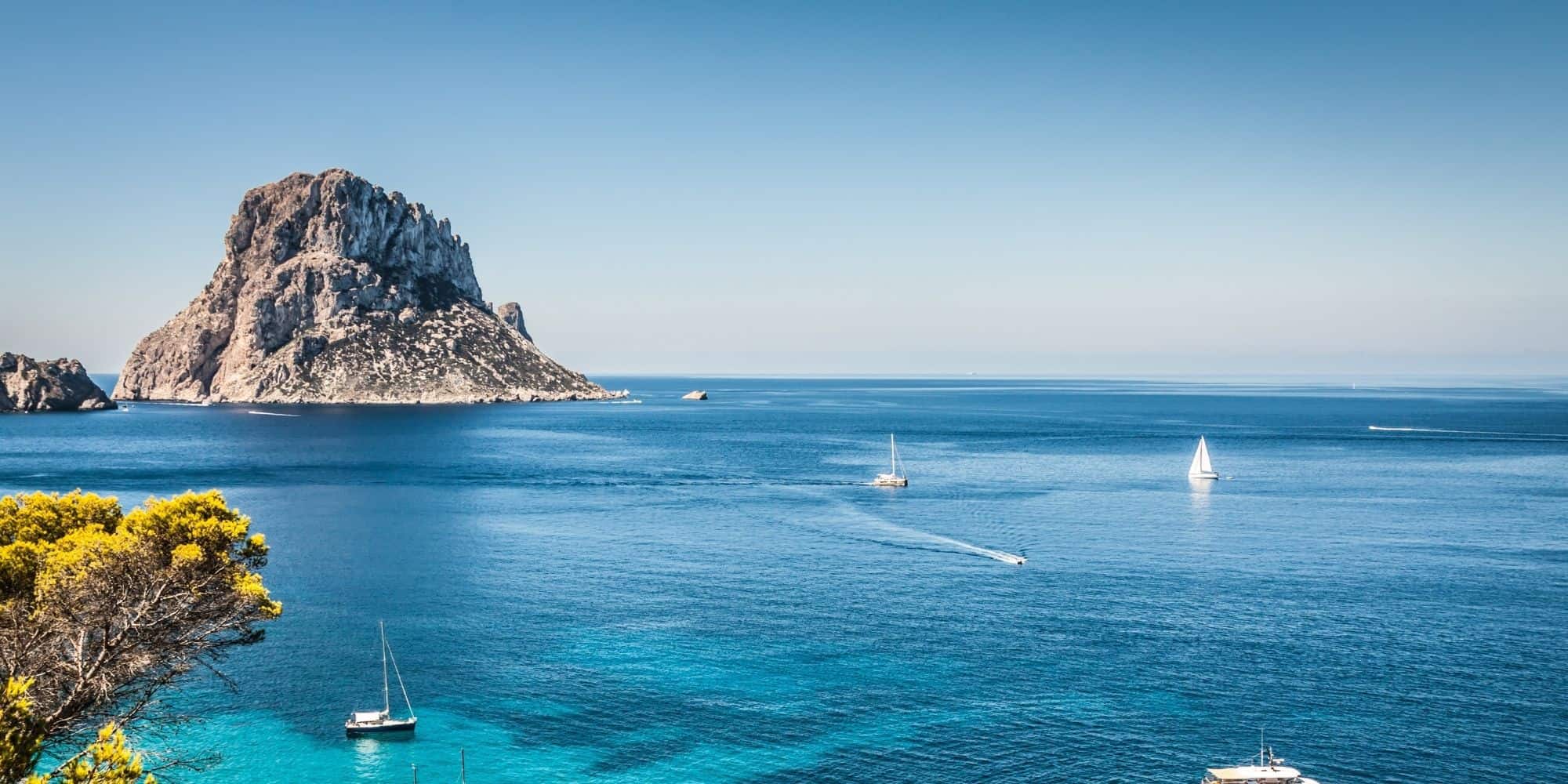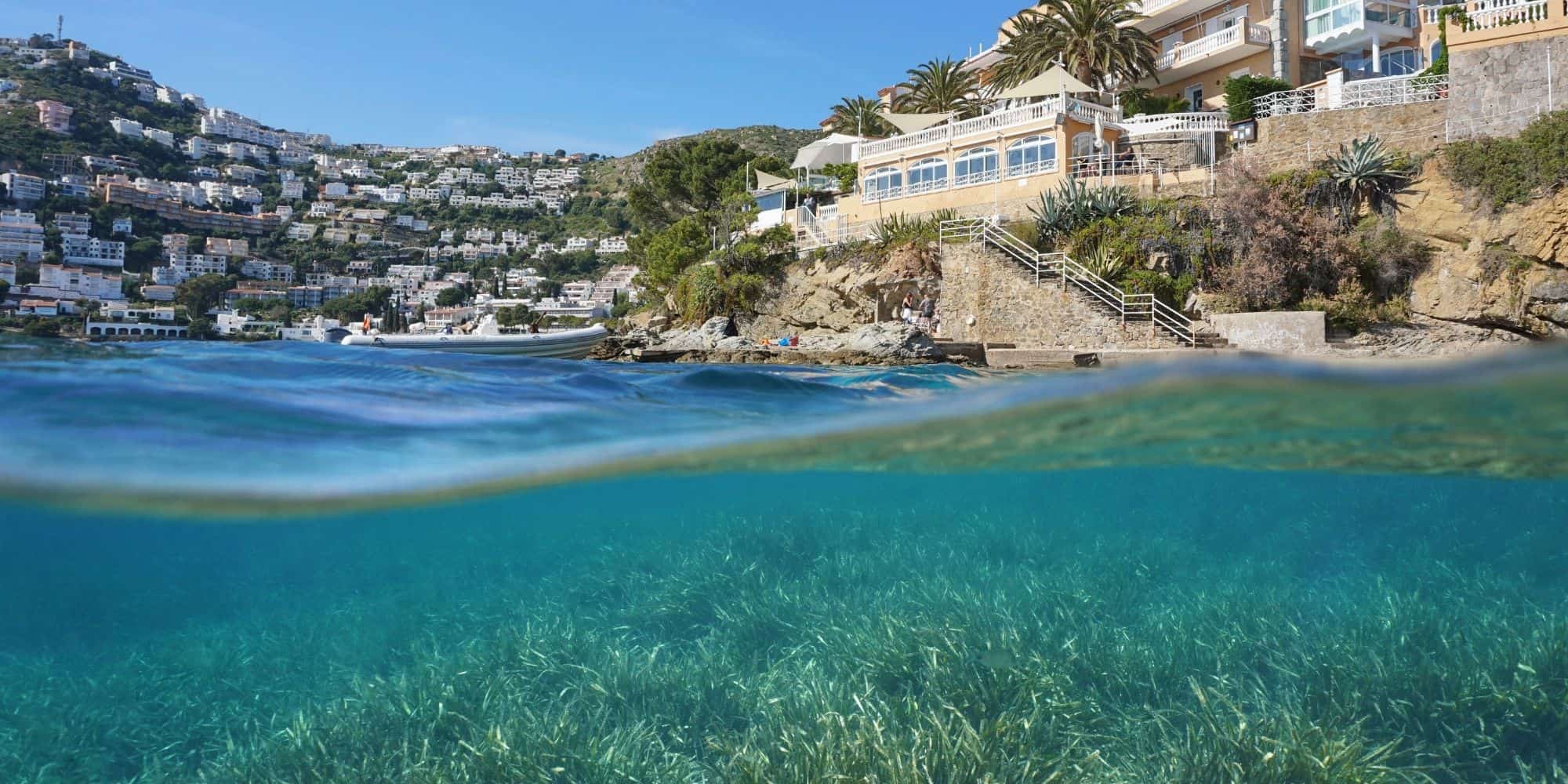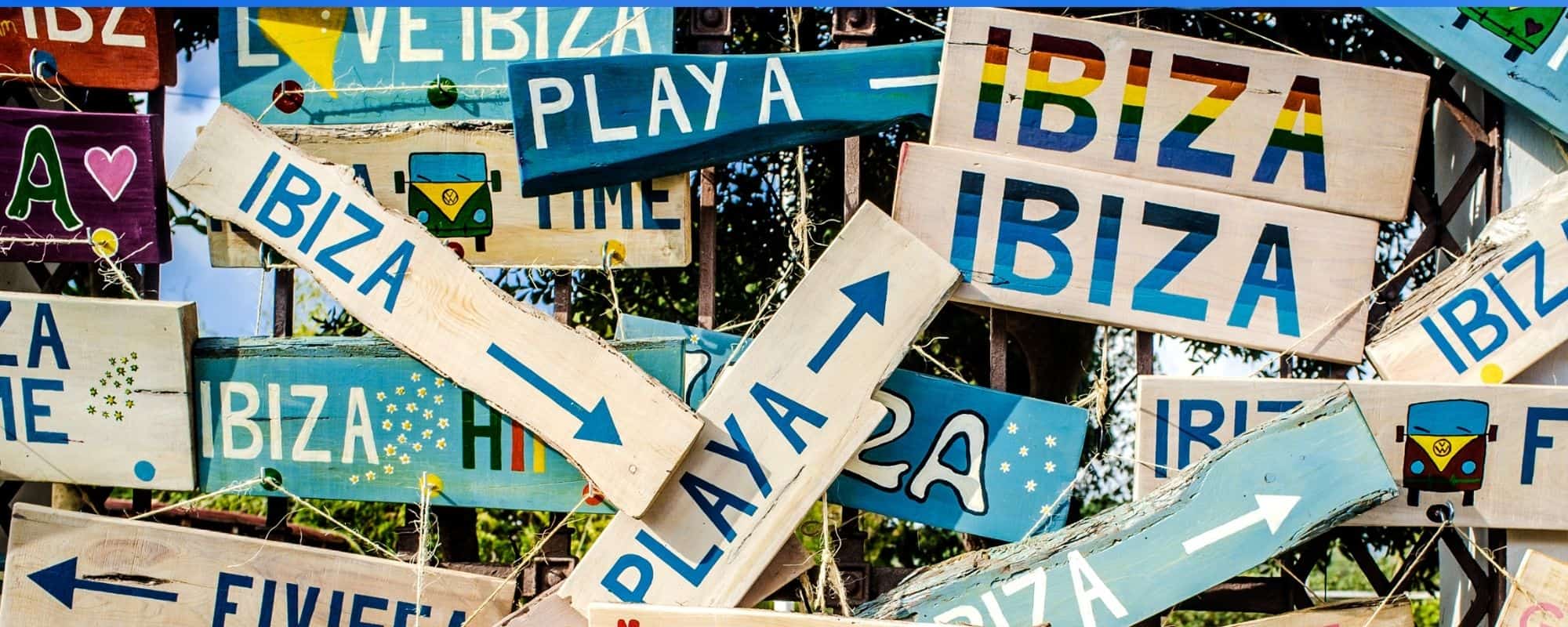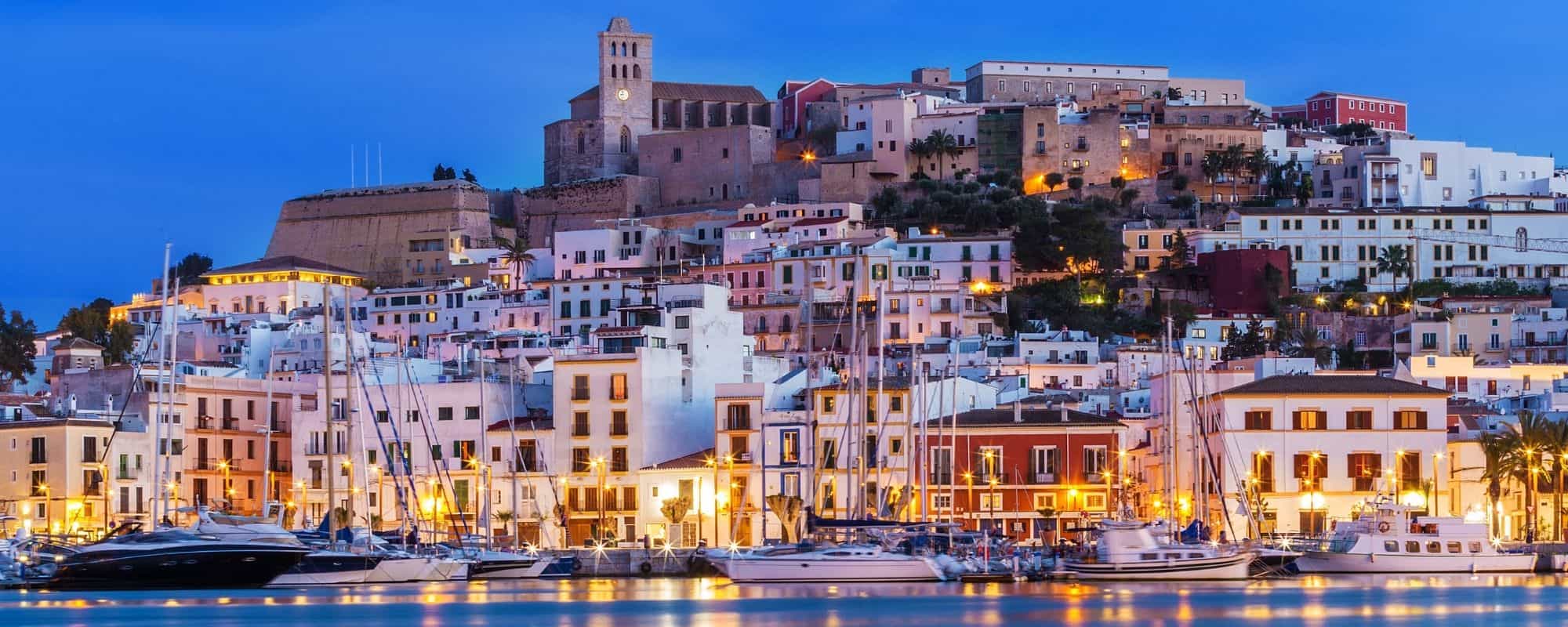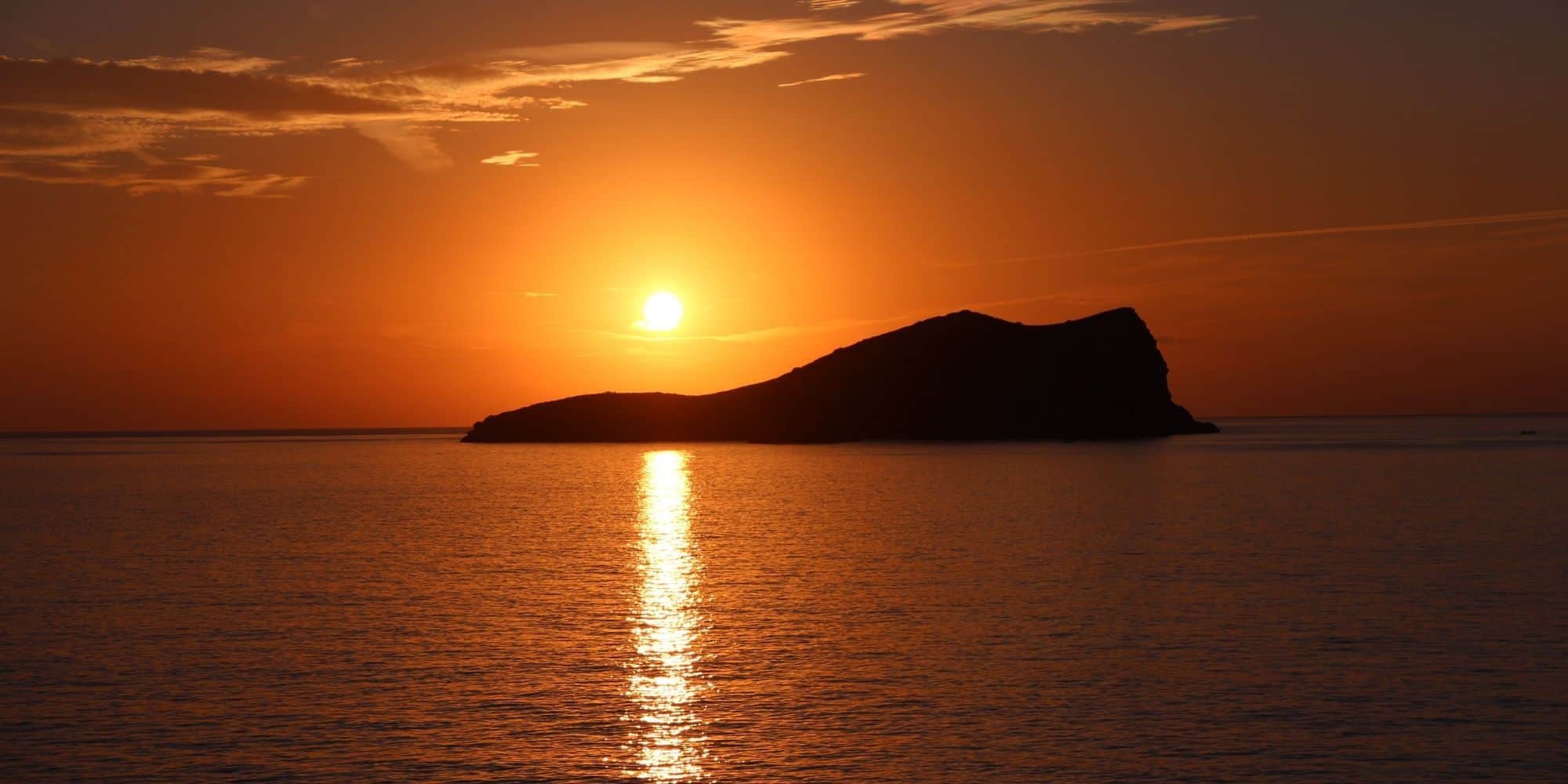Of all the Balearic Islands, Ibiza knows how to party. Or so everyone says. Of course, there’s a lot more to this sizzling Mediterranean island than nightlife. To get to know her better, enjoy these interesting facts about Ibiza.
See also: the best Mediterranean islands for your trip
FUN FACTS ABOUT IBIZA
Ibiza has multiple UNESCO World Heritage Sites
UNESCO has been busy in this small Mediterranean island, highlighting several different areas that deserve its seal of approval.
First up is the acropolis of Dalt Vila (the old town of Eivissa) . Then two places which are vestiges of the first settlements on the islands: the Phoenician archaeological site in Sa Caleta and the Puig des Molins punic necropolis.
Finally, the underwater posidonia meadows of the Pitiusas Islands are also inscribed on the UNESCO World Heritage Site list for their rich marine biodiversity.
It’s the underwater Neptune Grass that helps to make Ibiza a UNESCO World Heritage Site
Ibiza is also one of the Pitiusas or Pine Islands
Also described as the Pityusic Islands, this cluster of islands includes Ibiza, Formentera, S’Espalmador and other small islets. While they are beautiful on top, it’s their underwater posidonia meadows that get ecologists excited. Varyingly described as Neptune sea grass or, somewhat less poetically, Mediterranean tapeweed, this posidonia creates vast fields and meadows beneath the sea. In them, all manner of sea creatures can find shelter, creating an underwater world with great biodiversity. What’s more, this sea grass produces more oxygen per hectare than the Amazon rainforest, making it an important weapon with which to combat climate change.
The name Ibiza is a tongue twister
Internationally, you’ll hear it pronounced in many different ways. Eye-beeetha. Eee – bitzer. Eye- beefer. But the closest way that I can write it that matches what locals really say is “Evissa.”
Ibiza by the Numbers
Ibiza is the third largest island in the Balearics, with over 80 different beaches. It covers 572.56 square kilometres, making it six times smaller than nearby Mallorca but 10 times the size of Manhattan. Over two million international visitors fly in each year.
Its highest point is 475 metres above the sea at Sa Talaiassa.
Ibiza Likes to Party (Kinda)
With an international reputation for electronic dance music, arguably the world’s biggest nightclub and a roster of the world’s best DJs day and night, there’s no disputing that Ibiza can serve up some sizzling nightlife. Most concentrated in and around Ibiza Town on the southern shore and Sant Antoni on the west, Ibiza’s club scene is legendary.
But the islanders themselves are sometimes all partied out. Several campaigns from the Spanish Tourist Office aim to help visitors realise that there are other, more family friendly parts of the islands and a full range of Ibiza hotels to match.
In particular, Ibiza has developed a fondness for yoga retreats and hiking routes as well as family friendly resort fun.
Ibiza is Known as the White Island
Despite Ibiza’s party reputation, the nickname the “white island” refers to something rather poetic and sedate. Catalonian artist Santiago Rusiñol first used the phrase in the early 20th century, on account of the white washed houses and walls he found there.
Where and what are the Balearic Islands?
The gorgeous Balearic Islands shimmer and sheen across the Mediterranean Sea to the east of Spain’s mainland. The four largest, and most famous, islands include Mallorca, Menorca, Formentera and Ibiza. However, around 50 or so islands make up the Balearic archipelago, although most are uninhabited. As for governance, the Balearics are an autonomous community and province of Spain.
And the oldest club is…
Up for debate. Some claim that Pacha Ibiza is the oldest, throwing open its doors in 1973 and pulsing ever since. Others say that Amnesia should win the accolade but has simply forgotten about the details (Boom!) Amnesia began life on a former farm or finca and became one of the most famous super clubs in the world.
The sun shines on and in Ibiza
Ibiza experiences sunshine for 300 days of the year, according to the weathermen. The hottest months are July and August and, perhaps surprisingly, it does get cool in winter, although temperatures rarely get down to zero.

